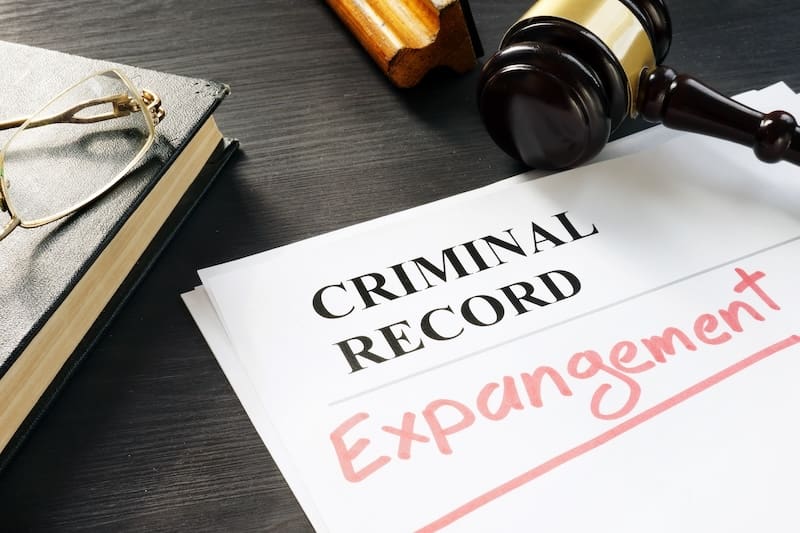100% Satisfaction Guaranteed
We offer a total mugshot removal solution to remove your mugshot and arrest details from the internet once and for all.

Table of Contents
Are DWI records public? Most of the time, yes, but the answer is more nuanced than that. Read on for everything you need to know about public access to DWI records.
The acronym DWI stands for either “Driving While Intoxicated” or “Driving While Impaired.” While specific charges vary by state, a DWI is a criminal offense — not a simple traffic ticket — for operating a vehicle when under the influence of alcohol or drugs.
It’s also important to discuss DUI, which stands for “driving under the influence.” In most states, both a DWI and DUI conviction is a serious offense, though the exact meanings of the offenses differ by state. Sometimes, a DWI and DUI conviction are technically the same, while other times, they refer to different charges. For our purposes, we’ll be using the terms interchangeably.
Most often, DWI charges are based on the driver’s blood alcohol content (sometimes referred to as “blood alcohol concentration”) or BAC. The individual’s BAC must be below the legal limit, typically 0.08%, to be legal for driving.
For some people, such as commercial drivers or drivers under 21, the BAC limit is lower. For example, in areas with a zero-tolerance policy, a BAC of 0.02% or higher may be illegal.
Commonly, DWI records are made public. This means they can appear in background checks, court databases and search engine results.
When it comes to your personal or professional reputation, having information about a DWI can impact everything from who befriends you to who hires you. For many people, it’s important to clean up search results for their name so it’s harder to find proof of past mistakes, such as a DWI.
Our mugshot removal services will remove your online arrest records, mugshot images and DUI records fast. Contact us today at 866-601-6803 to learn more.

Your DWI record or DUI records will include a lot of personal and sensitive information about you, such as:
This information is catalogued by DMVs, law enforcement agencies and state court systems. While each state handles DWI information and other types of public records differently, some states make it extremely easy to find this information online.
Yes, in most states, DWI information and DUI records are part of the public record. Often, DWI records are considered public court records, and they help create transparency in the legal system. Additionally, the U.S. Freedom of Information Act (FOIA) gives the public the right to access government records upon request.
There are a number of places where people can go to find DWI records, including:
There are a few exceptions to public access. If a juvenile got a DWI, those records will likely be sealed, as is the case with most juvenile arrests. Cases that were dismissed or expunged may also not show up on public law enforcement sites. When a court record is sealed or expunged, it’s no longer accessible by the public, though it can still be accessed for legal purposes.
Additionally, privacy laws vary by state and jurisdiction. While every state in the U.S. makes most DWI information public, there are some states that take extra steps to protect personal information and identifiers. For example, some law enforcement agencies won’t make a person’s driver’s license number or Social Security number public even if it’s part of the official court record.

Since DWI records and criminal records are available to the public in most cases, it’s not difficult for them to show up online and even spread if the information is newsworthy. Here’s how that happens:
Even if the DWI information is removed at the source at some point, it’s already been shared in multiple places online. This makes it more difficult to remove from search results.
Unfortunately, the more people access your DUI charges and other public records, the higher those records will appear on Google. By clicking on results for your arrest records and mugshot over and over, Google considers the information relevant. It will then rank that information higher in search results when someone queries your name.
Once your DWI or criminal convictions are made public, there are numerous ways they can impact your digital footprint and online reputation:
Our mugshot removal experts will analyze search engine results to find and remove your personal information, mugshots and criminal convictions online. Call us at 866-601-6803 for more information.

While it can take a lot of time and patience, there are a few ways to remove or limit access to online DWI records.
Both sealing and expungement are legal processes for removing arrest records and court records from public access. These options are only available in specific circumstances, such as juvenile arrests. You’ll have to meet certain guidelines, such as not having any other arrests since the incident you want to seal or expunge.
If you’re interested in pursuing one of these routes, it’s best to speak with an attorney. You’ll need to present your sealing or expungement peitition to the court in a specific way to be considered.
Also, it’s important to realize that even if your expungement petition is approved, it won’t necessarily remove your records from search results. Even if a court decides to hide your records from public view, you’ll need to contact every site that republished your public records, show proof of sealing or expungement, and wait for them to comply with your removal request.
Some mugshot sites and people search databases have removal processes you can follow. Most often, you’ll need to do the following:
After that, you may still have to contact Google to remove search results. Google doesn’t immediately update its search results once a page changes.
That means that even if law enforcement agencies or other sites take down your information, a link to the page and a bit of information could still show up in Google Search. This can be enough to damage your reputation.
Unfortunately, it’s not always easy to have your DWI records or DUI conviction sealed, expunged or removed from public databases. Often, the best option is content suppression.
Content suppression is an online reputation management (ORM) strategy that seeks to “bury” negative search results on Google. By regularly publishing fresh, positive content optimized for your name, those older, negative links can be pushed further down the search engine results page (SERP). Over time, they may disappear from page one of Google results completely, making them far less likely to be found.
While it’s best to hire an ORM professional or team to create and manage a suppression strategy for you, you can get a head start by utilizing your owned profiles and sites. Your social media accounts and websites are great places to consistently post new content optimized for your name.
We work on behalf of our clients to erase mugshots, arrest records, police reports and other sensitive information from the internet. Give us a call at 866-601-6803 to learn more.
While DWIs are generally part of the public record, their visibility and the information that’s included will vary by jurisdiction. However, if you’ve had a DWI, don’t take it lightly — it can have serious impacts on your career, personal life and reputation. Even if you didn’t do any jail time, simply having this information available can make it difficult for you to get the fresh start you deserve.
The good news is that through legal and ORM strategies, it’s possible to regain control of your online footprint. ORM strategies can help control what appears online when someone searches for your name. Techniques used include:
In addition to using professional ORM services, it’s smart to set up Google Alerts for your name and limit how much public information you share online.
Do you need help removing your arrest records and mugshots from search results? Get a free mugshot removal analysis today and sign up for a consultation with one of our experts. Learn more here.
We offer a total mugshot removal solution to remove your mugshot and arrest details from the internet once and for all.